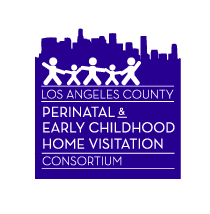A Review of Governor Newsom’s 2023-24 Budget Proposal
Governor Newsom released his proposed 2023-2024 California State Budget on January 10th. The Los Angeles Perinatal and Early Childhood Home Visitation Consortium welcomes the Governor’s investment in children and families and supports his continued focus on making programs, services, and resources more equitable.
Following is a list of relevant proposals to help families and home-visiting professionals gain a better understanding of which programs are included in the budget proposal [1].
Key Investments in Children:
California Responsibility to Kids:
The CalWORKs Program, California’s version of the federal Temporary Assistance for Needy Families (TANF) program, provides temporary cash assistance to low-income families with children to meet basic needs. It also provides welfare-to-work services so that families may become self-sufficient.
CalWorks Grant Increase- The Budget projects a 2.9% increase to CalWORKs Maximum Aid Payment levels, with an estimated cost of $87 million in 2023-24.
Children’s Programs:
Child Welfare Services include family support and maltreatment prevention services, child protective services, foster care services, and adoptions. Service programs are measured on how well they improve the safety, performance, and well-being of children and families served. This year’s budget includes $884.9 million for services to children and families in these programs.
Child Care and Development:
Child Care- California reached a historic agreement with Child Care Providers United- California (CCPU) to increase childcare reimbursement rates.
Significant Adjustments in the 2023 Proposed Budget:
Cost of Living Adjustment (COLA)- The Budget includes a $301.7 million General Fund for Child Care and Development Programs and $1.5 million for the Child and Adult Care Food Program to reflect an estimated statutory COLA of 8.13%.
Child Care Slot Expansion Timing- The Budget maintains the commitment initiated as part of the 2021 Budget Act to continue funding 110,500 new subsidized childcare slots added in 2021-22 and another 36,000 new slots added in 2022-23.
Universal Transitional Kindergarten:
Access to high-quality, evidence-based early education can support and accelerate the learning of young children and provide pre-elementary students with the skills and tools needed to succeed in school.
The Budget includes $690 million to implement the second year of transitional kindergarten expansion, which will increase access to the program to all children turning five years old between September 2 and April 2 (approximately 46,000 children).
$165 million to support the addition of one additional certificated or classified staff person in transitional kindergarten classrooms serving these students.
Full implementation of universal transitional kindergarten is expected in 2025-26.
Universal School Meals:
In 2020, the U.S. Department of Agriculture allowed states to apply for a waiver of certain requirements connected to the National School Lunch Program and School Breakfast Program. The Budget protects the funding for universal access to subsidized school meals and the additional enhanced meal rate. California will spend over $1.4 billion to reimburse school meals and ensure all students who want a meal will have access to two free meals each day.
Key Investments for Families:
Health and Human Services
Health and Human Services Innovation Initiative- this initiative will seed a new entity and provide an initial investment so that researchers and developers can create solutions to the greatest health challenges facing Californians.
Targeting diabetes-related morbidity and mortality, addressing disparities in maternal and infant mortality faced by women and their babies, and preventing and mitigating infectious diseases.
Designated State Health Program and Rate Increase- the Budget includes $22.7 million in 2023-24 and $57.1 million ongoing for primary care and obstetric care provider increases.
Reproductive Health Services 1115 Waiver- the Budget includes $200 million in 2024-25 for a grant program focused on supporting access to family planning and related services, system transformation, capacity, and sustainability of California’s safety net.
Healthcare Workforce- the budget maintains over $1 billion General Fund to the Department of Health Care Access and Information (HCAI) to strengthen and expand the state’s health and human services workforce.
These investments include funding for increasing nurses, community health workers, and social workers as well as supporting new individuals coming into the workforce in behavioral health, primary care, and reproductive health.
Housing and Homelessness
The 2023-24 proposed budget does not include targeted funds for rental assistance or permanent housing to meet population needs. Instead, this year’s proposal is focused on establishing stronger accountability measures and maintaining the 2022-23 Budget Act funds such as:
$1 billion General Fund for the Homeless Housing, Assistance and Prevention (HHAP) Grant Program that provides local jurisdictions with flexible funds to address homelessness.
$400 million General Fund for encampment resolution grants for local jurisdictions.
$250 million General Fund for the Behavioral Health Bridge Housing Program, which supports people experiencing homelessness with serious behavioral health conditions through short-term bridge housing and services.
Some Medicaid funds for homelessness prevention and rehousing assistance include:
The CalAIM transitional Rent Waiver Amendment would provide up to six months of rent or temporary housing to eligible unhoused individuals or those at risk of homelessness who are transitioning out of institutions or foster care and are at risk of inpatient hospitalization or emergency care. This is estimated to cost $17.9 million and will increase once it is at full implementation.
The California Behavioral Health and Community-Based Continuum Demonstration would allow rental payments or temporary housing coverage for individuals enrolled in Medi-Cal with serious behavioral health conditions.
Criminal Justice:
Domestic and Sexual Violence, Human Trafficking, and Children’s Services- $15 million one-time General Fund was provided to expand domestic violence and sexual violence prevention efforts.
A $6.7 million ongoing General Fund was provided to increase reimbursements to local law enforcement agencies to offset the cost of reimbursing qualified healthcare professionals, hospitals, or other emergency medical facilities for medical evidentiary examinations for all sexual assault victims.
A $30 million one-time General Fund was provided over three years to expand the human trafficking survivor support program.
$11 million one-time General Fund was provided to support the Family Justice Center Program providing services for victims and their children.
What’s next?[2]
The budget will now move to the state legislature, where it will be reviewed through May. During that time, the Governor’s proposed budget is divided into different subject matters and assigned to various committees. The subcommittee hearings make changes to the original proposed budget. These subcommittee meetings are a good way for citizens to voice their opinions because they are public and oftentimes televised. By May 14, the Governor will announce an updated version of the budget called the “May Revise”
Resources:
If you would like to read more about the proposed budget, click here.
If you are interested in learning more about the budget process, click here.
[1] https://ebudget.ca.gov/budget/2023-24/#/BudgetSummary
[2] https://www.senate.ca.gov/sites/senate.ca.gov/files/the_budget_process.pdf


